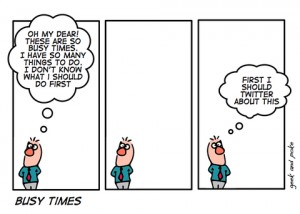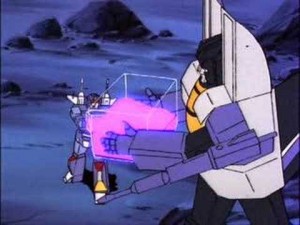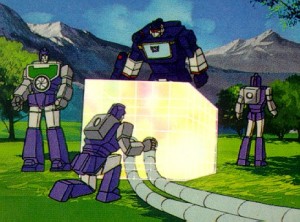The Energon Methodology
Several years ago, during DemonWare’s initial growth spurt, I was a very stressed out guy. I had difficulty keeping track of the company’s commitments, of meetings, conference calls, trips and conferences, not to mention the regular work of handling 100+ emails per day and managing product development. I had difficulty sleeping, and probably wasn’t much fun to be around.
One day in Vancouver, our sales director, Art Santos, decided to convert me to David Allen’s “Getting Things Done” (GTD) methodology. GTD spreads through co-workers, who have either taken pity on their colleagues, or need them to pull it together. They often sound like acolytes of a new-age cult, much like Art did that day, and I do nowadays. For the uninitiated, GTD is a methodology for approaching your work and managing your time, created by David Allen as a management coach over many years. It’s simple, effective, and in no way cultish or bullshitty. It’s just a specific pragmatic approach that is popular because it has worked for so many people.

GTD is mainly about how to deal with emails, schedule work, and keep track of tasks in such a way that you have strong visual feedback and control, with nothing slipping through the cracks. A very appealing aspect is its focus on how a simple system that you can trust leaves you free to actually relax at the end of the day, and stop stressing out about what you’ve forgot to do, or who you’ve forgotten to email. I vouch for it - it worked for me. I became both more efficient and less stressed.
Over the last year or so I’ve realized that there is an important dimension that GTD fails to adequately deal with, namely energy. I imagine that there is a roughly fixed amount of energy that I have in any given day to spend how I will. However, different kinds of tasks, interruptions, conversations and people drain this energy at different rates. Where GTD helps me control how much time I spend on tasks, I also want an easy system at hand to monitor the hidden cost of these tasks. How much energy they consume, not just how much time. If you will, its about effectiveness, not just efficiency. I have devised an accounting system for personal energy, and its proven interesting, and perhaps useful. It has definitely made me more aware of where it is all going.

In my system, a unit of personal mental energy is called the Energon Cube. If you are of my generation, you may remember that Decepticons were all about stealing these in the mid ’80s. I get 24 Energon Cubes each day. When I’m in flow, I use up one Energon Cube every 20 minutes or so. This means I can get about 6 or 7 hours of full flow work done, and have a bit left over for cooking dinner. I’m talking about that rare kind of day devoid of interruptions, in which you complete a hefty piece of difficult work to full satisfaction, and go home with a smile on your face.
Unfortunately, Energon Cubes are seldom spent so wisely or pleasurably. Consider the interruption: it takes the typical information worker 15 to 25 minutes to regain his or her train of thought after a forced context switch such as a phone call or a colleague demanding your time (see the excellent Peopleware for more). That’s a whole Energon Cube that was just stolen from you by a callous co-worker who couldn’t care less, and didn’t even have a real emergency on his hands. It’s outrageous!
Unfortunately, interruptions are the least of our worries. My estimates of the costs of other common decepticon tricks are as follows:
- Phone call: 0.5 - 1.0 energon cubes
- Meeting: 2 Energon Cubes per 20 minutes, multiplied by the number of other people. I.e., meeting with 2 other people uses up 4 Energon Cubes every 20 minutes. Note that a work-related conversation is simply a meeting that you have suffered in a surprise ambush, and also counts.
- Other people’s conversations: 1.5 Energon Cubes per 20 minutes. This one is insidious - unless you have a personal office, you are likely losing 33% productivity just from other peoples words slicing up your train of thought.
- Heated emotions: 5 - 10 energon cubes per incident. Heated emotions are all too common in startups, which are populated by passionate people pouring themselves into their work. For me at least, any emotionally charged altercation leeches out a significant portion of my daily Energon quota.

I’m sure there are many other decepticon energon traps out there - the list is young, and is sure to become more complete. It is already paying off for me though, giving me a simple vocabulary to think with, spot the traps, and (I hope) figure out how to avoid them.
I’d love to hear some other people’s opinions. Do you have your own system for figuring this out, or any embellishments to my own? Are you in the camp that believes that you can re-charge over lunch? And what is the Energon impact of a cup of strong coffee?